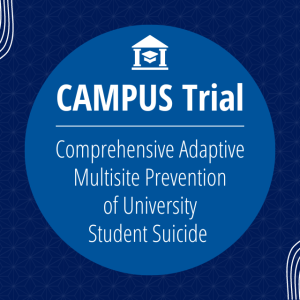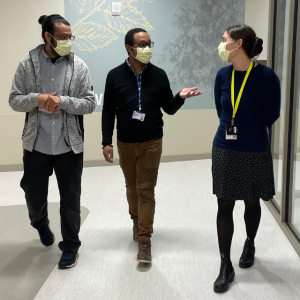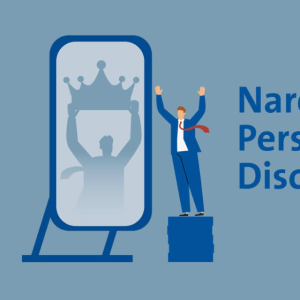Check out our news archive below to learn more about what’s happening in Duke Psychiatry & Behavioral Sciences!
Duke Regional Hospital Rounds out Behavioral Health Team with Pharmacist
On a typical day at Duke Regional Hospital, you might find pharmacist Amber Kapuganti, PharmD, BCPP, rounding with the behavioral health inpatient team, consulting with psychiatric emergency department providers, answering trainees’ medication questions, leading games to teach patients about medication safety and usage, and advocating for new medications to be added to the hospital’s formulary. Kapuganti is the hospital’s first dedicated behavioral health pharmacist.
Innovative Study Seeks to Improve Suicide Prevention for College Students
The Comprehensive Adaptive Multisite Prevention of University Student Suicide (CAMPUS) trial aims to test more targeted, adaptive strategies to better treat the range of students experiencing suicidal ideation. Duke Psychiatry's Scott Compton, PhD, is the lead investigator for the Duke University arm of the study. Other participating institutions include Rutgers University, University of Nevada-Reno and University of Oregon.
Duke’s Psychology Consult Service Offers Inpatients a Touch of Therapy and Interns a Cherished Learning Experience
Duke Psychiatry's Jeremy Grove, PhD, directs the psychology consult service on Duke Regional Hospital’s inpatient unit. He and two clinical psychology doctoral interns—Mohammed Alsubaie, MS, and Julia Chafkin, MA, LPA—provide one-on-one consults with patients and facilitate group sessions to help patients build skills to cope with challenges in their lives.
9 Signs of Narcissistic Personality Disorder
Having narcissistic tendencies -- like bragging or making yourself the center of attention -- are normal when they occur occasionally. Narcissistic personality disorder (NPD) is different. Symptoms are more severe, occur across different situations and environments, and make relationships with others challenging, if not impossible. In this blog post and video, Duke Psychiatry's Zachary Rosenthal PhD, shares his expertise on the topic.
Four Genes Identified as Heightening Risk of Suicidal Thoughts/Actions
A large study of military members led by researchers at Duke Health and the Durham VA, including Duke Psychiatry's Nathan Kimbrel, PhD, identified four genes that are linked to an increased risk of suicidal thoughts and behaviors.
Brief Sessions of Guided Reflections Improve Health Care Worker Burnout
Watching short, web-based tutorials that inspire health care workers to contemplate awe, gratitude and kindness can promote enduring improvements in mental health outcomes such as depression and emotional exhaustion. The study, led by Duke Psychiatry's Bryan Sexton, PhD, was published December 8 in Frontiers in Public Health.
NCDHHS Launches New Mental and Behavioral Health Training and Consultation Support in K-12 Schools
This winter and spring, 130 public schools across North Carolina will receive mental and behavioral health training and consultation through the North Carolina Psychiatry Access Line (NC-PAL). NC-PAL is a a collaboration between Duke University’s Department of Psychiatry & Behavioral Sciences and the North Carolina Department of Health & Human Services.
National Center for Child Traumatic Stress Renewed at $40 Million
The UCLA-Duke National Center for Child Traumatic Stress (NCCTS) was awarded $40 million over five years to continue raising the standard of care and increasing access to services for children and their families across the U.S. who have experienced trauma. The NCCTS is co-directed by Lisa Amaya-Jackson, MD, MPH, professor of psychiatry and behavioral sciences at Duke and Jenifer Maze, PhD, in the Department of Psychiatry and Biobehavioral Sciences at UCLA.
New Psychiatry Clerkship Director Seeks to Inspire Interest in Behavioral Health
As the new director of the Department of Psychiatry & Behavioral Sciences clerkship program, Cerrone Cohen, MD, an assistant professor in both psychiatry and behavioral sciences and family medicine and community health, recognizes the valuable opportunity the clerkship gives Duke University medical students, while also getting equally energized about the vital long-term role it can play in preparing students to help address the mental health crisis in the U.S.
Study Shows Crossword Puzzles Beat Computer Games in Slowing Memory Loss
A randomized study led by Columbia University and Duke Psychiatry's Murali Doraiswamy, MBBS, FRCP, determined that crossword puzzles have an advantage over computer video games for memory functioning in older adults with mild cognitive impairment.









